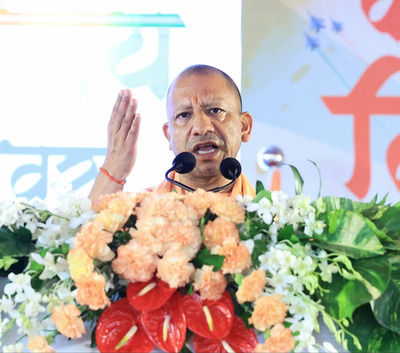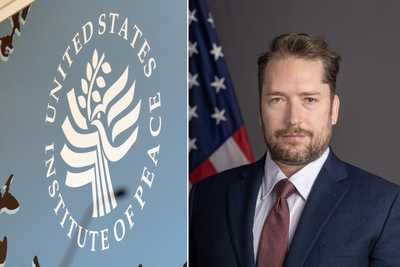

Following deadly clashes against the Druze and Alawites minorities, and amid the planned dissolution of the Kurdish PKK, Syria's Kurds are at a critical juncture. To what extent do Turkey, Israel and the US have a say?In the aftermath of the latest violence against minorities in Syria, military representatives of Syria's largest minority, the around 2.5 million Kurds, have now clarified that for them, "disarmament is a red line." On Thursday, Farhad Shami, the spokesperson for the Syrian Democratic Forces (SDF), told the local TV channel al-Youm TV that "those betting on our capitulation will lose, the tragic events have made that clear." He was referring to the deadly violence between Bedouin Arab tribes and the third-largest religious minority, the Druze, which rattled the country earlier this month. Stating the SDF's "red line" is all the more significant, as Syria's Kurds are also politically at a critical juncture. A planned meeting on Thursday in Paris about key details of an earlier peace deal between the Kurds and Syria's interim government led by President Ahmed al-Sharaa was postponed, and has not yet been rescheduled. The sticking points of the agreement, meant to be implemented by the end of the year, are the integration of the Kurdish forces into Damascus' national army and the authority over Syria's Kurdish region with its border crossings to Iraq and Turkey, as well as the region's oil fields and prisons with thousands of "Islamic State" fighters. Meanwhile, a Syrian government source told the news agency AFP that "using the events in Sweida or along the coast [where violence against the Alawite minority took place in spring this year] to justify refusing to return to the state fold is a manipulation of public opinion." "A genuine national dialogue cannot happen under the threat of weapons or with backing from foreign powers," the source added. Turkey warns Kurds against exploiting tensions On Wednesday, however, The Associated Press news agency reported that Damascus had requested Turkey's support to strengthen Syrian defense capabilities. Ankara is known as fierce supporter of Syria's interim president. Turkey also considers the Kurds in Syria to be affiliated with the Kurdistan Workers' Party, PKK, which is categorized as terrorist organization by Turkey, the EU and US. Therefore, Turkey would like to see the Syrian Kurdish forces either integrate in Syria's national army, or to lay down their weapons along with the recently announced end of the PKK and the symbolic weapons' destruction ceremony in Iraqi Kurdistan on July 11. Turkey has also been trying to clinch a defense agreement with Damascus. But such a deal would reportedly include establishing Turkish military bases on Syrian territory, presumably in Syria's northeast where the Kurdish population resides under the administration of the Kurdish-led Autonomous Administration of North and East Syria. According to the AP agency, Turkish Foreign Minister Hakan Fidan has warned Kurdish and other groups in Syria against exploiting the tensions in Syria's south to pursue autonomy. He also stated that any attempt to divide Syria would be viewed as a direct threat to Turkey's national security and could prompt intervention. While it remains to be seen if, or to what extent, the Syrian Kurds will maintain their semi-autonomy in Syria's northeast within the frame of the peace deal with Damascus, it is the general quest for autonomy that differentiates the Kurds from other factions in the country. However, all have called on Damascus to uphold their rights as minorities in the country. "If minorities such as the Druze, Alawites and Christians are not granted inclusive rights, the Kurds will not give up any of their specific demands either," Mohamed Noureddine, a Beirut-based Middle East professor at the Lebanese University, told DW. "Unless the administration of Ahmed al-Sharaa in Damascus establishes a dialogue and adopts a constitution that treats all citizens equally, there will be no stability," he said. Al-Sharaa has repeatedly said he will uphold the rights of minorities and guarantee protection, although not all the factions of his government support this stance. Recent attacks on minorities were allegedly exacerbated by governmental forces. Will Israel, US get involved? "If the Kurds feel significantly threatened by Turkish offerings of security sector support to Damascus, I could easily see Israel taking advantage of that," said Natasha Hall, a foreign policy expert at the Washington-based Center for Strategic and International Studies. "We already know there's been a relationship between Kurds in various countries and Israel, as part of Israel's sort of grander plan to establish relationships with minorities across the Middle East," she told DW. Earlier this month, Israel targeted the headquarters of the Syrian Defense Ministry in central Damascus and government forces in Sweida in support of the Druze minority. "We could see an insurgency in the foreseeable future unless the US decides to actually hold the hand of various warring parties and support security sector reform and the unification of the army," said Hall. In her view, this would also include the safe handoff of the US-backed but Kurdish-run prisons with some 9,000 suspected members of the "Islamic State" terror group, along with some 40,000 IS fighters and their families in Kurdish-led detention camps. If the Kurds and Damascus were aligned in these matters, Hall believes it could also hold Israel back and allay the concerns of the Kurds and the Turks — but only with stringent security agreements and guarantees of rights, she added. "The question is whether or not the administration in Washington has any kind of patience for those details," she said. After 14 years of civil war, a lot needs to be done in Syria's post-conflict environment to address its different factions and shattered economy. "Balancing the different ideologies in warring factions in Syria would be challenging for any Syrian leader," said Hall. "Even if you were talking about someone with a very clean record, not Ahmed al-Sharaa [who used to have links to Islamist extremist groups before he became the country's interim president in December], this would be a very difficult balancing act, to say the least." However, in her view, for Syria and all of the Syrian minorities it is not just a "nice thing" to have national reconciliation. "It is something that is very necessary to ensure stability and peace for the future." This article was originally written in German.
-
'It's too hot to sleep so I made my own DIY air con for £1 - it cools me down in seconds'

-
Op Sindoor resonates with echoes of Kargil War: UP CM Yogi Adityanath

-
Trump admin appoints ex-speechwriter who attended white-supremacist meetings to key position

-
Lotte Wubben-Moy's rise from Arsenal's academy to seismic social impact with the Lionesses

-
Class 12 Youth Beaten To Death By Girlfriend's Father In MP's Ratlam; Had Come To Meet Her At 12 In Midnight
